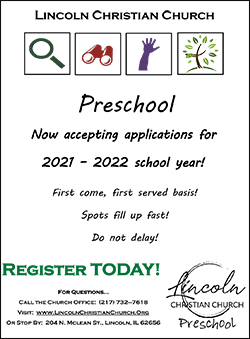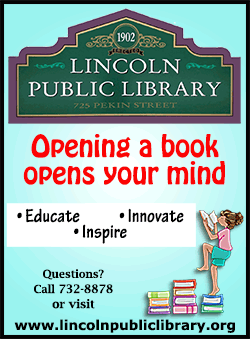|
 When colleges had to quickly move to online
instruction last spring, administrators, faculty and students had to
adapt quickly. When colleges had to quickly move to online
instruction last spring, administrators, faculty and students had to
adapt quickly.
One survey on “Student and Faculty Experiences with Emergency Remote
Learning in Spring 2020” showed each group’s feelings about this
shift.
Summarizing the survey, “While the emergency shift to online
instruction and the pandemic itself presented daunting challenges
for faculty, they identified many strengths in the response of the
institutional community. In spite of increased workloads, many
faculty members felt that the move online stimulated their
creativity and helped them refine their learning objectives.” Many
said this change, which showed faculty “new platforms” and teaching
methods, “permanently changed their practice for the better.”
At Lincoln Christian University, Vice President of Student
Development Jill Dicken said some positives she has seen are
“flexibility, creativity, and greater adaptation to technology.”

Lincoln College Interim Dean of Instruction and Faculty Karin Wright
also shared some positives she has seen throughout the pandemic:
“While facing organizational and technological challenges, the
pandemic has given us an opportunity to look at education with fresh
eyes. It allows us to approach every aspect of college with
innovation. We have had to retrain ourselves with technology and
course design, reminding us of what it is like to be a student.”
Former LC Interim Vice President for Academic Affairs Michelle
Baldwin, who has recently transitioned back to teaching, feels the
college handled the shifts well. Baldwin observed, “In higher
education, we are so accustomed to strategic planning with best
practices in mind; however, our current situation left us planning
for a less than ideal situation filled with uncertainty and
unknowns. However, we were able to carry-on, doing our best to keep
the college’s students, faculty and staff safe while still serving
our mission.” She said, “I am very proud of the faculty, staff and
students who have persevered. I am also proud of our leadership who
has kept the safety of the Lincoln College community as its top
priority as we serve our students.”
When many colleges began the 2020-2021 school year, hybrid learning
became the norm. Some believe this model will bring continued
benefits and become fundamental to education. Students must become
more independent, but instructors can use in class sessions to
remind students of expectations and answer questions in person.
For the online element of the course, most research shows professors
use chat groups, video meetings and document sharing through various
online platforms. These meetings can enhance in class learning and
student engagement as some students being more likely to ask
questions online.
Lincoln College student Cherokee Pendergrass said instructors having
virtual meetings and office hours provided a good way to communicate
and ask questions. She often found it better than just emailing
them.
The online tools used by instructors also enhance student learning
and participation. For instance, students may feel more comfortable
asking questions online than in a face-to-face meeting. Online
discussion boards allow for extended dialogue about classroom
topics, helping students better understand the topic.
When Lincoln College had to go remote last fall, student Carla
Gutierrez-Anaya said she found the online meetings helpful when she
had questions or doubts, though sometimes a bad connection caused
problems. She has found most teachers to be very dedicated and
understanding and appreciates all the readily accessible sources the
school provides.
An article by Brandman University on “Five benefits of hybrid
learning for adults going back to school” said, “Blended and hybrid
models can be arranged so that some of the more complex or hands-on
topics can be presented in the traditional classroom setting, while
other subject matter can be facilitated online. “Being able to share
some information online may allow for more in depth learning of
subjects.
LC’s Wright said offering hybrid learning “has allowed for more
personal connection and engagement with students. Some students may
like face-to-face more, but online learning stretches professor and
students to be more creative and flexible and expand their
horizons.”
Having some of the subject matter online can give students a chance
to learn some of the material at their own pace and contact the
instructor when they have questions.
Learning at their own pace was something students enjoyed. As
Pendergrass said, she could get work done earlier in the semester
and then focus more on finals. When she needed assistance, LC’s
academic support center offered online tutoring.
In “Hybrid Model to Expand from Learning to Campus Services,” Dian
Schaffhauser said, “The hybrid approach being taken by most colleges
and universities to get through the pandemic could turn out to have
the positive effect of making those schools more student-centered,
not just in education but across the board.”
This approach could also help colleges and universities be better
prepared for future challenges. An article on the hybrid campus in
Deloitte Insights said, “A hybrid approach will allow institutions
to become more resilient during future disruptions, whether
pandemics or natural disasters; help institutional leaders better
manage costs and pedagogical demands; and, ultimately, become more
student-centered.”
[to top of second column] |

At Lincoln College, lead faculty have tried to come
up with more creative ways to feature their programs online. Wright
said social media managers have done a fantastic job with
communication, recruitment and retention even while off campus.
Students have also enjoyed being involved with social media
campaigns.
Some changes that have been implemented may have long term benefits.
In “COVID-19 has changed university teaching,” Deputy Associate Dean
of Learning and Teaching Paul Cowell at University of Stirling in
Scotland shares five positive changes he feels should continue after
the pandemic.
For instance, Cowell said “The online space can be engaging,
enriching, and accessible” can “deepen and support learning outside
the classroom.” In the online learning environment, “video and
interactive media are now part of how students learn, and discussion
boards allow for conversations to continue and ideas to be recorded
outside of classes.”
Some students may feel more comfortable sharing their thoughts
online. As Cowell said, “Interactions and discussion that students
take part in online can say much more about engagement than simply
showing up at a lecture.”
Traditional assessment often requires students to recall information
and does not often allow students to show creativity. However,
Cowell said “assessments that are open-book -- such as producing
case studies, putting together a brief policy paper, and recording
podcasts—reward curiosity and academic inquiry.”
As for how assessment at Lincoln College changed, Wright said, “More
professors are using project-based learning to assess students. Some
encourage more creativity with technology using video.”
In one class Pendergrass worked with, the assessment was somewhat
non-traditional with the professor allowing students to do a
five-minute video or song for their final project. In classes with a
traditional final, she said professors letting students use notes on
assessments was helpful.

When teachers have time to plan, Cowell said, “Incorporating online
teaching will allow lecturers to focus on what activities best suit
the subject they are covering and design them to fit.” These changes
may improve teaching in the future.
Local colleges are also seeing the benefits of online incorporation.
Wright said in the long term “both students and faculty will be more
creative and flexible in their approach to course design. Students
have been exposed to a wider variety of virtual sources that will
help them in the future.” Wright believes online learning will
continue to grow, giving students more learning choices. Entire
programs may be offered online.
Baldwin has also seen some positives from the increased use of
technology: “Due to some grants and reallocation of funds, we have
been able to improve our technology resources and have been able to
provide students with laptops to assist them as needed during this
time. Consequently, our students and faculty are engaging with
technology more than they ever have in the classroom, myself
included.”
Additionally, Baldwin said, “The college is now in a better position
to begin launching some online programs in addition to our current
instructional delivery modality. Our limited face to face
interaction has also nudged us to find new ways to connect and build
relationships.”
With Lincoln College facing the same struggles as other institutions
due to this pandemic, Baldwin said “Overall, I think we will come
out of this situation stronger and wiser.”
As the blog post “What Students and Colleges Faced During the
Pandemic” concluded, “Both students and colleges found ways to be
creative and resilient and even considered or engaged in practices
that could make the U.S. higher education more equitable.”
Resources:
Brandman University. “5
Benefits of hybrid learning for adults going back to school”
Brandman University, 10 Jan. 2019.
Clark, Cole et al. “The
Hybrid Campus: Three major shifts for the post-COVID University”
Deloitte Insights. 2021.
Cowell, Paul. “COVID-19 has changed university
teaching-here are five things to stick with in the future,” The
Conversation, 28 Jan. 2021.
McDaniel, Christy et al. “Student
and Faculty Experiences with Emergency Remote Learning in Spring
2020.”Ithaka S+R , 22 Oct. 2020.
Schaffhauser, Dian.“Hybrid
Model to Expand from Learning to Campus Services,”Campus
Technology, 1 Feb. 2021.
|
Read all the articles in our
new
2021 Education Magazine
Title
CLICK ON PAGE NUMBERS TO GO TO PAGES |
Page |
|
Educating
in a most challenging year |
4 |
| A
preschool that is exciting, educational and
engaging |
5 |
| Local
educators creating practical math |
6 |
| The
efficacy of remote learning |
9 |
|
Differences in college education during the
pandemic |
13 |
|
Changing the social dynamics of education |
19 |
| School
resource officer makes positive impact |
24 |
| What's
a dog doing in school? |
26 |
|
Academics and meaningful lessons blended |
31 |
| The
return of school sports |
35 |
| Logan
County School profiles |
38 |
|
|